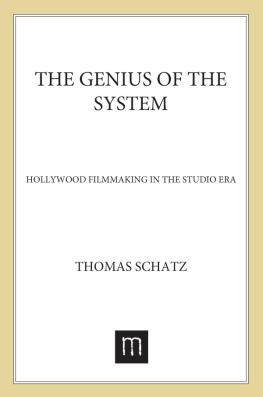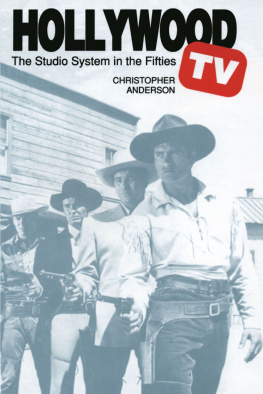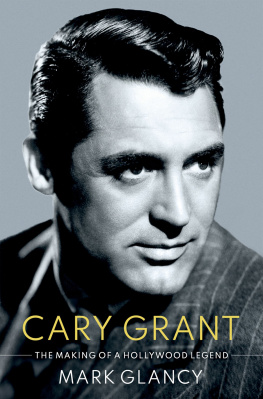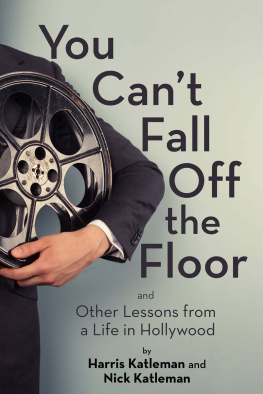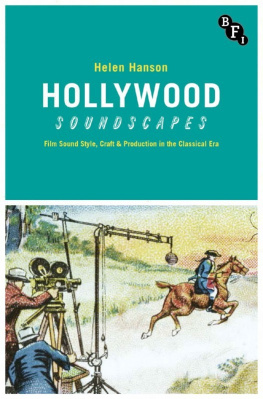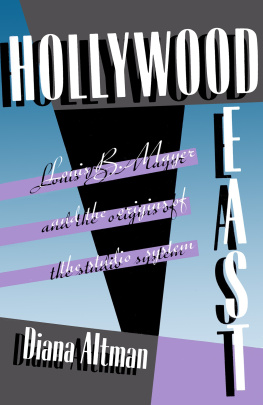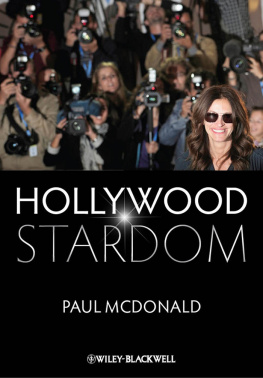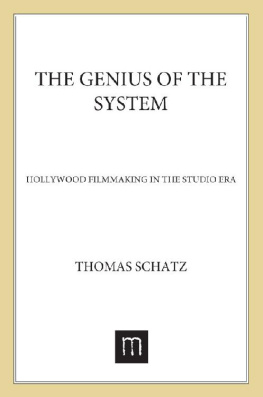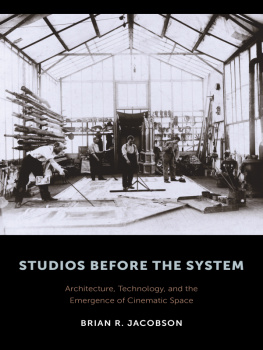The author and publisher have provided this e-book to you for your personal use only. You may not make this e-book publicly available in any way. Copyright infringement is against the law. If you believe the copy of this e-book you are reading infringes on the authors copyright, please notify the publisher at: http://us.macmillanusa.com/piracy.
The research for The Genius of the System took me to various archives, libraries, and depositories around the country, all of which are listed in the bibliographical section at the end of this book. I would like to acknowledge those institutions here at the outset, and to thank various individuals for the generous and able assistance I received on this project.
I am deeply indebted to Leith Adams and to Ned Comstock of the Department of Special Collections, University of Southern CaliforniaLeith for his help with the Warners materials and Ned for his help with the MGM and Universal files. They also provided valuable ideas and advice as this project took shape. At the Academy of Motion Picture Arts and Sciences Margaret Herrick Library, my research was arranged and assisted by Sam Gill. Anne Schlosser helped me access and sort through the George B. Seitz Collection in the American Film Institutes Louis B. Mayer Library. At the Wisconsin Center for Film and Theatre Research, I was assisted by Harry Miller and Maxine Fleckner.
The support I received from the University of Texas and its Humanities Research Center while researching and writing (and rewriting) this book was enormous. I am especially grateful to W. H. (Deacon) Crane, Ray Daum, Paul Bailey, and Prentiss Moore for their assistance in the Hoblitzelle Theatre Arts Library at the Humanities Research Center, and also to Thomas Staley, Director of the HRC. Permission to quote from materials in the Selznick Collection at the HRC was granted by Selznick Properties, Limited. Jeffrey L. Selznick and David Thomson were gracious enough to review this manuscript and offer constructive suggestions for revisions. My thanks also go out to Dean Robert Livingston of the University Research Institute for financial support during the early stages of my research, and to Dean Robert Jeffrey of the College of Communication for similar assistance. I am most indebted, finally, to Bob Davis and Horace Newcomb, who as my friends and colleagues, and as successive chairs of the Radio-TV-Film Department, were upbeat and supportive throughout the five-year life span of this project. I would also like to thank my graduate students at the university for their support, encouragement, and patience, with special thanks to Chris Anderson for his research and editorial assistance.
Many other individuals helped in many different ways, and I am particularly grateful to Edwin Sharpe, Kathryn Burger, Greg Beal, Joann Lammers, Don Hartack, and Hilary Radner. Id also like to acknowledge Dudley Andrew and Bruce Gronbeck of the University of Iowa for providing me a place to hole up while I began work on the manuscript.
MY deepest gratitude goes to Sara Bershtel, my editor. This book would not have been taken on without her encouragement, and it would not be even half what it is now without her counsel and tireless assistance. Sara commented throughout this project on the similarities between book publishing and moviemaking, and indeed she played the role of creative producer from its inception to the final cut. Thanks also to Peter Biskind, a leading film writer and editor in his own right, who first suggested that I take on this subject and who monitored it from a distance.
When The Genius of the System: Hollywood Filmmaking in the Studio Era was first published I wrote that I thought it a necessary book. I did and I do. Its reappearance now will enable it to join that slender selection of film books essential to scholars and a lasting delight to fans. The current edition is justified by many distinctions, as you will see, including a timeliness no one could have foreseen when it was originally published.
I should confess my subjective credentials and bias right away. My first job in the movie business was in the studio system that is the main subject of this book. It was at MGM as the sixties turned into the seventies. Leo the Lion was wheezing his last Ars Gratia Artis gasp, but remnants of the studios structure and one-time glory lingered, if only in reproach. The first picture I ever worked on was photographed by William Daniels, who had been Garbos great cinematographer and was still under studio contract in 1969; editing was overseen by the legendary and formidable Margaret Booth, who had worked for Irving Thalberg and edited pictures like Camille and the original Mutiny on the Bounty. Within months, MGMs props, sets, costumes, and much of the magic they represented (including Dorothys ruby slippers from The Wizard of Oz) were on the auction block, placed there by a newly installed chief executive from television known as the smiling cobra. Later, as the seventies became the eighties, I was myself production head of a major company, United Artists. By then a torpor seemed to paralyze much of the industry, and uncertainty and fickle audience taste were, like death and taxes, the only certainties.
As one of those involved with the legendary disaster Heavens Gate, I played my role in that uncertainty-verging-on-panic. I have done my mea culpas elsewhere, but as Ive shed considerable blood of my own in the corridors of power (and powerlessness) which are the concerns of the book in your hands, I claim a certain bruised authority in regarding it as necessary.
It is so, I think, because Thomas Schatz provides the most insightful and well-researched examination of the studio system at its height that we have. He leads the reader with compelling narrative skill through Hollywoods Golden Age: how it grew, how it achieved what he calls that delicate equilibrium and marvelous symmetry that had so much to do with why the silver screen turned momentarily golden.
The Genius of the System is far more ambitious than a mere history of the studio era. With a scholars detachment, a critics sensitivity, and the tenacious shrewdness of a detective, Mr. Schatz sweeps away the confusion, hearsay, and misinformation film history is plagued with. He expertly reveals what I think of as the center of creative gravity at the heart of the studio system and of this centurys art form. I envy the first-time reader of these pages the experience of discovering that center with him. Mr. Schatz makes getting there as fascinating as it must have been to be there at the time, in a manner wholly persuasive and inordinately entertaining.
That should be enough to make any book necessary, but there is more. In the time that has passed since The Genius of the System

